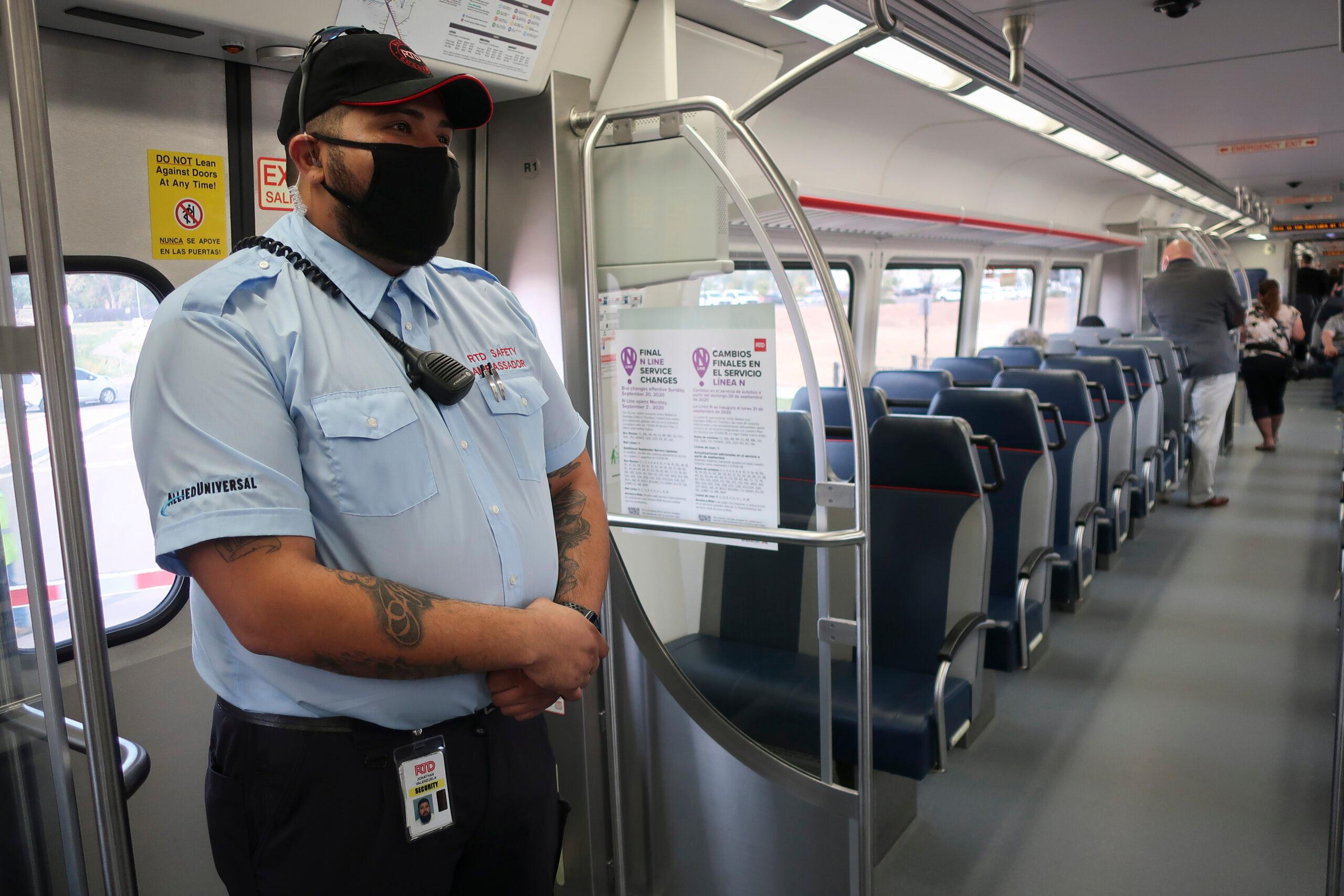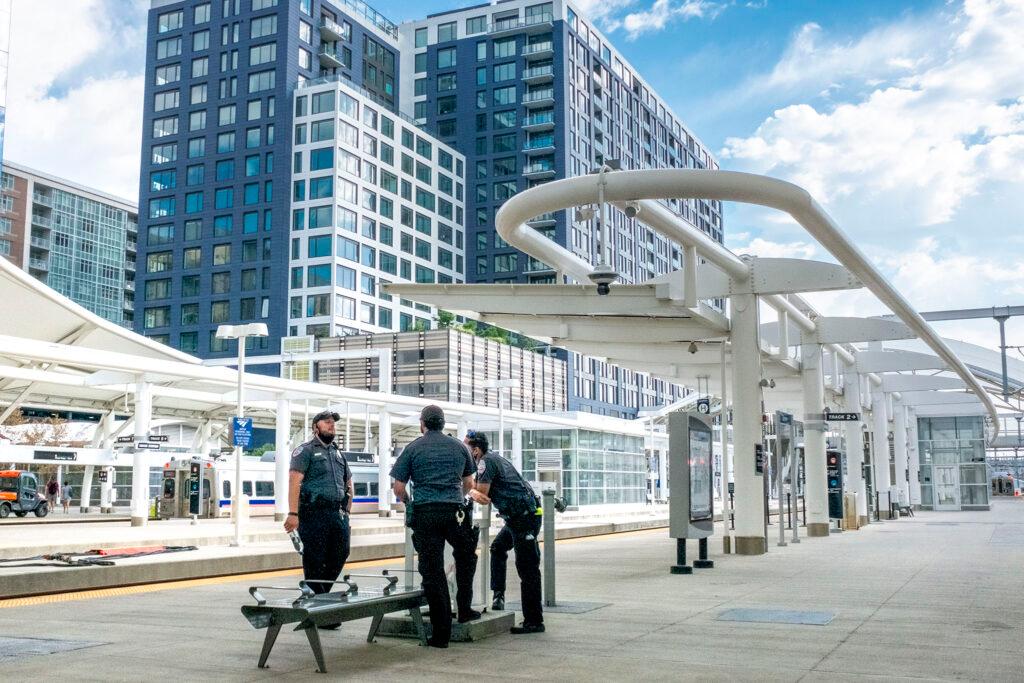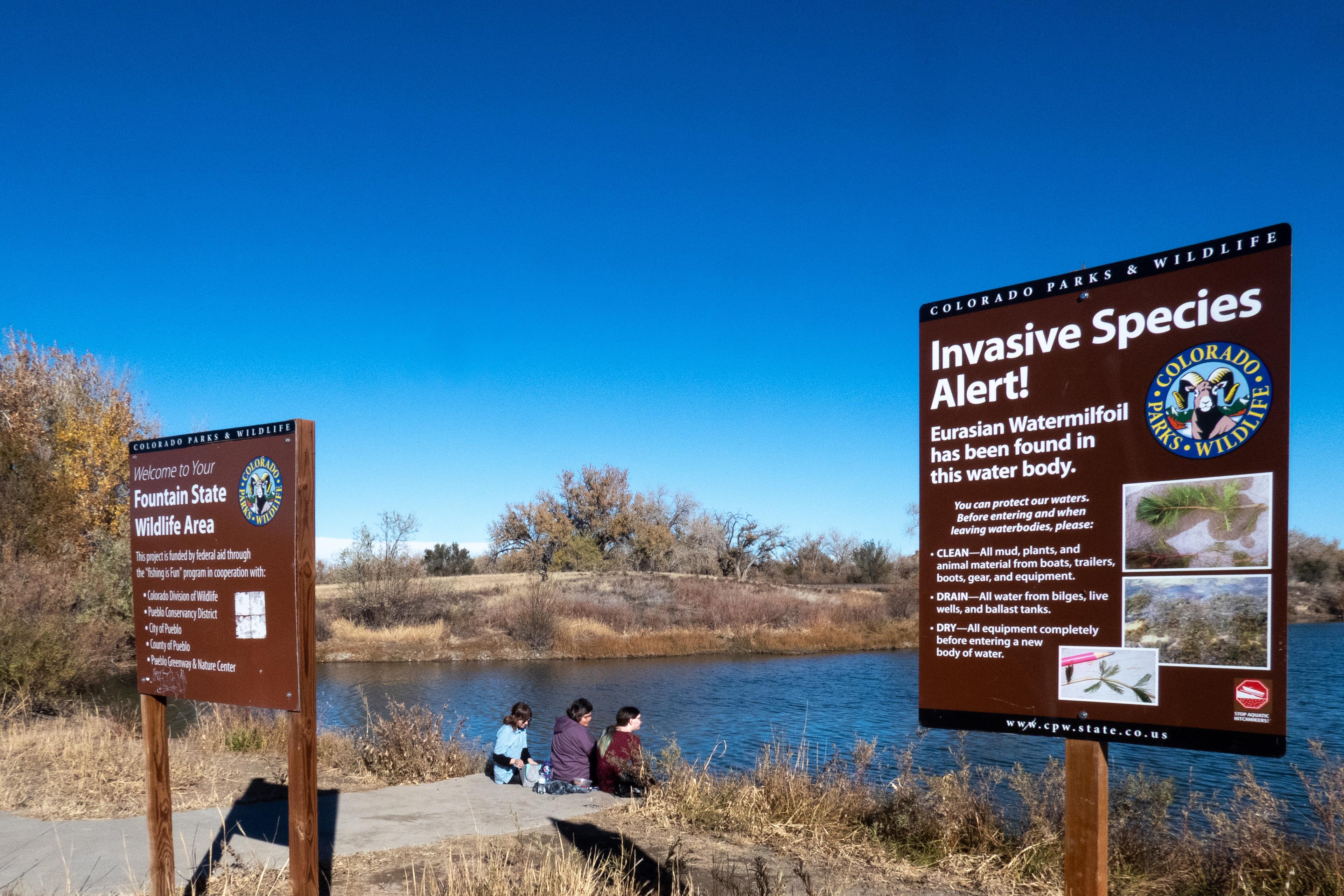
The state's largest transit agency plans to rely less on private security guards and moonlighting cops to patrol its buses, trains and stations.
Regional Transportation District staff are proposing the sprawling transit agency beef up its own small police force — it currently has about 10 officers — to more than 50 by 2025. It would also replace armed private security officers on its rail systems with transit safety ambassadors — a move piloted on the recently opened N Line — and reduce its reliance on contract guards.
“Basically that gives us a little more control,” Mike Meader, RTD’s chief safety and security officer, said in an interview. “That’s the primary reason.”
The proposal would amount to a significant shift in how policing and security work at RTD. Eight years ago, Meader said, when RTD hadn’t yet opened any of its FasTracks rail lines, it had about 70 private security officers. Now, there are more than 300, with hundreds more off-duty police officers. The agency’s ability to adequately oversee its contracted officers has diminished as the force has grown.
“Anytime you grow as rapidly as we have, it presents challenges for oversight of just about anything you do,” Meader said.
RTD Chief of Police Bob Grado said the agency grew that way because it’s cheaper.
“It's more expensive to have a professional police officer in uniform out there on the street,” he told an RTD board committee in early November. “And because we're so big, it works. It has worked fairly well."
Grado said that his department has to be “pretty hands off” in how it manages its contractors.
"We set the tone, if you will, and kind of steer it along,” Grado said. “But we have to be very careful. Because if we don't then we're assuming some liability. We tell them what we expect of the service. And usually, generally, 99 percent of the time, we're getting what we're paying for."
One high-profile exception to that came in April 2018, when an Allied security officer told Denver artist Raverro Stinnet, who was waiting at the Union Station bus depot, to go into a bathroom. The officer followed him in and then beat him unconscious.
“If there had been a transit police officer in that building, if we'd had the resources at that time, I don't believe that ever would have occurred,” Meader said.
In a court filing in the ensuing lawsuit, RTD argued that it wasn’t responsible for the actions of the private officer. Allied and Stinnett reached a tentative settlement last month.
Under the new plan, RTD would have more officers it could directly hire, train and oversee. While private security officers can make citizens’ arrests, their main function is to observe and report back to licensed law enforcement. Right now, Grado said, RTD has just eight officers in the field.
"If we're going to be a police department, we need to be a police department,” Grado said.
Board member Kate Williams said it’s important that security forces remain visible.
"There are people who are really grateful to see somebody in a uniform on the same platform,” Williams said.

The proposal is a move “in the right direction” to RTD board member Shontel Lewis.
Over the summer, Lewis proposed a more drastic cut to RTD’s security budget that ultimately failed by a 14-1 vote. She’s since sat on a board committee created in the wake of that vote and has aired concerns about the lack of public input and available data.
A spreadsheet provided by RTD on use of force showed about 700 incidents between January 2018 and August 2020. Union Station was the most common site and physical restraint was the most common technique used. But data wasn’t recorded consistently, and it contained little other information. Many of the incidents were minor, Grado told the board this month. He’s proposed hiring a crime analyst as part of the overhaul.
On the whole, Lewis said, if RTD’s security forces ultimately carry fewer guns and are less concerned with writing citations for missing fares, “that’s an absolute win.”
“If folks continue to be open and collaborative, then I think we can get to a place where we are truly re-imagining safety and security,” she said.
It’s not yet clear where the main bus driver and light rail operator union, the ATU-1001, stands on the proposal. Its leaders were critical of Lewis’ attempt to cut RTD’s security.
Cutting private security would bring RTD closer to implementing alternative transit policing methods.
Ma’ayan Dembo, who has studied alternative transit policing methods at the University of California Los Angeles, said there’s a few things RTD should do to make sure its new systems work well — like forming a citizen oversight committee, and putting its unarmed safety ambassadors in its customer service department.
“Their focus might be very different than it would if they're reporting, let's say, to the police chief, just in terms of what the priorities are what they're tasked with doing and the ways that they define success,” she said.
RTD also plans to add three more mental health workers in addition to clinician Danielle Jones, who’s been on the job since May. While she often works with law enforcement officers, Jones said sometimes it’s helpful for the officers to step back and let her de-escalate a situation.
“Somebody might be in a crisis because something happened that day,” she told a board committee this month. “And it's just having a casual conversation with them ... as a clinician, I can sit with them and have a conversation and calm them down and get them on their way."
RTD board chair Angie River-Malpiede said the agency will need help from other entities including local governments and mental health nonprofits to address underlying issues like homelessness and poverty.
“This is not an RTD issue. This is a community issue,” she said.
The proposal will be presented to the full board next month, and if approved, the changes would start next year.









